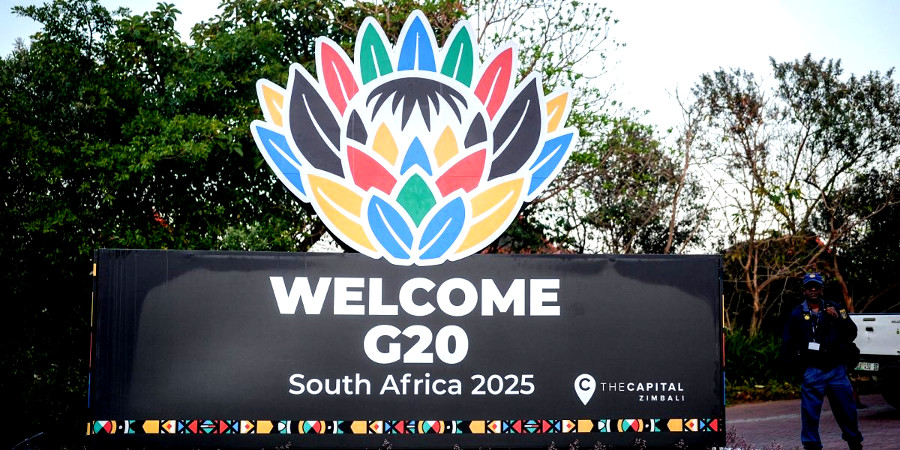|
Trump Officials Are Policing Words and Foiling Deals at G20 Summit Vice President JD Vance was scheduled to represent the administration at this year’s summit, set to take place next weekend in South Africa, the first African nation to host the group. But President Trump last week abruptly said the United States would boycott, and no U.S. officials would attend. “It is a total disgrace that the G20 will be held in South Africa,” he said, citing false allegations that white South Africans were being killed en masse. President Cyril Ramaphosa of South Africa responded curtly on Wednesday: “Their loss.” In interviews with The New York Times, more than a dozen participating G20 officials said the United States had spent much of the year drawing red lines, skipping working meetings and refusing to negotiate in the lead-up to the final gathering in Johannesburg. The moves, they said, put into stark relief Mr. Trump’s aggressive foreign policy and distaste for multilateralism, compromise and anything he considers political correctness. “This is not at all normal,” said Michelle Gavin, a former American diplomat in Africa. “It’s petulant and ultimately self-defeating. What we’re doing is losing an opportunity to influence the international discourse.” Disagreements at the G20 are common, but participating nations are usually able to issue joint declarations. This year, though, Trump administration officials have mounted what some participants have called a concerted effort to block consensus on a wide range of principles — including those the United States had supported during Mr. Trump’s first term, such as clean energy. The White House did not respond to requests for comment. The United States did agree to some joint declarations ahead of the meeting, including ones on debt sustainability, air quality and illicit wildlife and minerals smuggling. But Mr. Audat, the energy official, said a U.S. representative at a ministers’ meeting last month flatly objected to using the word “transition” in working documents, insisting that all energy sources be prioritized, rather than focusing on low-carbon emissions or renewables. “In our view, this is a complete shift from the U.S. position last year,” Mr. Audat said. This working group, and others on topics like trade and health, were unable to produce joint declarations this year. When working groups fail to agree on a declaration, the chair of the group issues a summary of the discussion instead. In the case of the energy transition meeting, Kgosientsho Ramokgopa, South Africa’s energy minister who served as chair, delivered an impassioned speech to the group when it became clear it would not be able to agree on a declaration, said Mr. Audat, his top adviser on the issue. Mr. Audat recalled Mr. Ramokgopa saying that, while the delegates would go home to comfortable lives, many Africans would continue to live without electricity. The speech drew a standing ovation and left some delegates in tears, according to Mr. Audat and others in the room. Representatives of several countries later asked Mr. Ramokgopa to take the unusual step of naming their nations in his summary as a show of support, Mr. Audat said. Only four countries chose not to be included: the United States, Argentina, Saudi Arabia and Turkey. In a working group on health, U.S. representatives stayed silent for most meetings, according to Mr. Kavanagh, of Georgetown. It was only during one of the final sessions that a representative from the Department of Health and Human Services spoke up and said the Trump administration, disagreeing with many details in the working draft, could not support a joint declaration, according to one of the officials who spoke with The Times. The U.S. delegation said it could collaborate on fighting noncommunicable diseases like cancer, but issues of equity, universal health care and support for the World Health Organization were nonstarters, Mr. Kavanagh said. “All of which is kind of bizarre,” he said. “None of these three things are controversial in public health.” While G20 declarations are not binding, analysts say they can spur countries to take tangible action, such as the creation of a fund three years ago to help countries prepare for pandemics. https://www.nytimes.com/2025/11/15/world/africa/trump-g20-boycott.html Back |
|
||||||
|
|||||||




